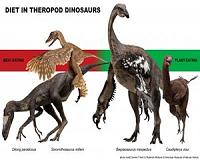 |
Komodo Island, Indonesia (AFP) Dec 22, 2010 They don't breathe fire but Komodo dragons -- the largest lizards in the world -- can kill a buffalo or any one of the intrepid tourists who flock to their deserted island habitats. "I feel like I'm in the middle of Jurassic Park, very deep in the past," said Hong Kong visitor Michael Lien during a recent trip to Komodo Island, the main habitat of the threatened Indonesian lizards. Spread out before him is a landscape from the dawn of time -- mountainous islands with palm trees plunging down to the azure sea. Lien and his wife are excited and a little nervous at the same time. "What am I supposed to do if a dragon appears suddenly?" he asks Johnny Banggur, the guide on a tour of the island, an almost uninhabited speck in the east of the vast Indonesian archipelago. Armed with 18 years experience and a hefty club for good measure, Banggur dispenses some welcome advice: don't wander from the track and stay with the group. Three metres (10 feet) long and weighing up to 70 kilograms (150 pounds), Komodo dragons are lethargic, lumbering creatures but they have a fearsome reputation for devouring anything they can, including their own. They prefer to scavenge for rotting carcasses, but can kill if the opportunity arises. Scientists used to believe their abundant drool was laced with bacteria that served to weaken and paralyse their prey, which they stalk slowly but relentlessly until it dies or is unable to defend itself. But new research has found the lizards are equipped with toxic glands of their own. One bite from a dragon won't kill you, but it may make you very sick and, eventually, defenceless. In 2007 a nine-year-old boy went into the bushes to answer a call of nature and never came back. In 1974 a Swiss man disappeared during a bird-watching walk. His glasses and camera were all that was ever found. Komodo dragons have appalling table manners but at least they finish their dinners -- bones, hoofs and all. Banggur explains that dragons can devour half their own weight in a single meal. Reassuringly, he adds that they "prefer" buffalo, deer or wild boar and the danger to humans is "very limited". Even so, the Liens have no intention of going anywhere near the menacing reptiles, with their yellow, forked tongues, powerful jaws and sharp claws. About 2,500 dragons live on the island named after them ("komodo" means dragon in Indonesian). Along with neighbouring Rinca island, it is the main dragon habitat in the Komodo National Park, created in 1980 to preserve the ancient species. The island's brave human inhabitants -- about 2,000 in all -- used to hunt wild boar and deer, thereby competing with the lizards for food. Now they are the dragons' chief guardians. "On Komodo, everything is done for the peaceful cohabitation of humans and dragons," park manager Mulyana Atmadja told AFP. Visitors pay to set foot on the islands and take guided tours on designated tracks, always in the company of a ranger. Some 40,000 tourists are expected this year, 90 percent of them foreigners. "We need to act carefully because an excessive number of visitors will trouble the Komodos' natural habitat," Atmadja said. US environmental group The Nature Conservancy has helped the Indonesian authorities shift the local economy into one that sustains both the human and reptilian inhabitants. The villagers still fish but no longer compete with the dragons for food. To supplement their incomes they have the exclusive right to sell Komodo miniatures, pearls and other souvenirs. "We've done campaigns to raise the locals' awareness and provide other sources of income for them. The more tourists who come to visit, the more money they can earn," the park chief added. It's worked so well the park managers were able to stop feeding the dragons in 1990. Some of the lizards had apparently forgotten how to fend for themselves and simply waited for tourists to offer them live goats. Komodo Island is already listed as a World Heritage site by the United Nations, and there is now a push to include it on a list of the New Seven Wonders of Nature.
Share This Article With Planet Earth
Related Links Darwin Today At TerraDaily.com
 Meat-Eating Dinosaurs Not So Carnivorous After All
Meat-Eating Dinosaurs Not So Carnivorous After AllChicago IL (SPX) Dec 22, 2010 Tyrannosaurus rex may have been a flesh-eating terror but many of his closest relatives were more content with vegetarian fare, a new analysis by Field Museum scientists has found. The scientists, Lindsay Zanno and Peter Makovicky, who will publish their findings in the journal Proceedings of the National Academy of Sciences, used statistical analyses to determine the diet of 90 species of thero ... read more |
|
| The content herein, unless otherwise known to be public domain, are Copyright 1995-2010 - SpaceDaily. AFP and UPI Wire Stories are copyright Agence France-Presse and United Press International. ESA Portal Reports are copyright European Space Agency. All NASA sourced material is public domain. Additional copyrights may apply in whole or part to other bona fide parties. Advertising does not imply endorsement,agreement or approval of any opinions, statements or information provided by SpaceDaily on any Web page published or hosted by SpaceDaily. Privacy Statement |